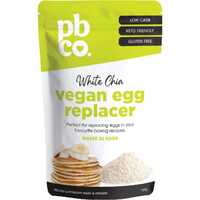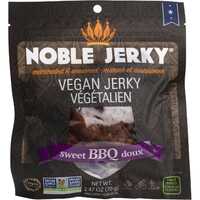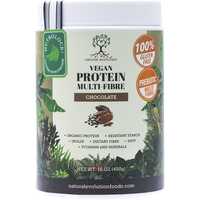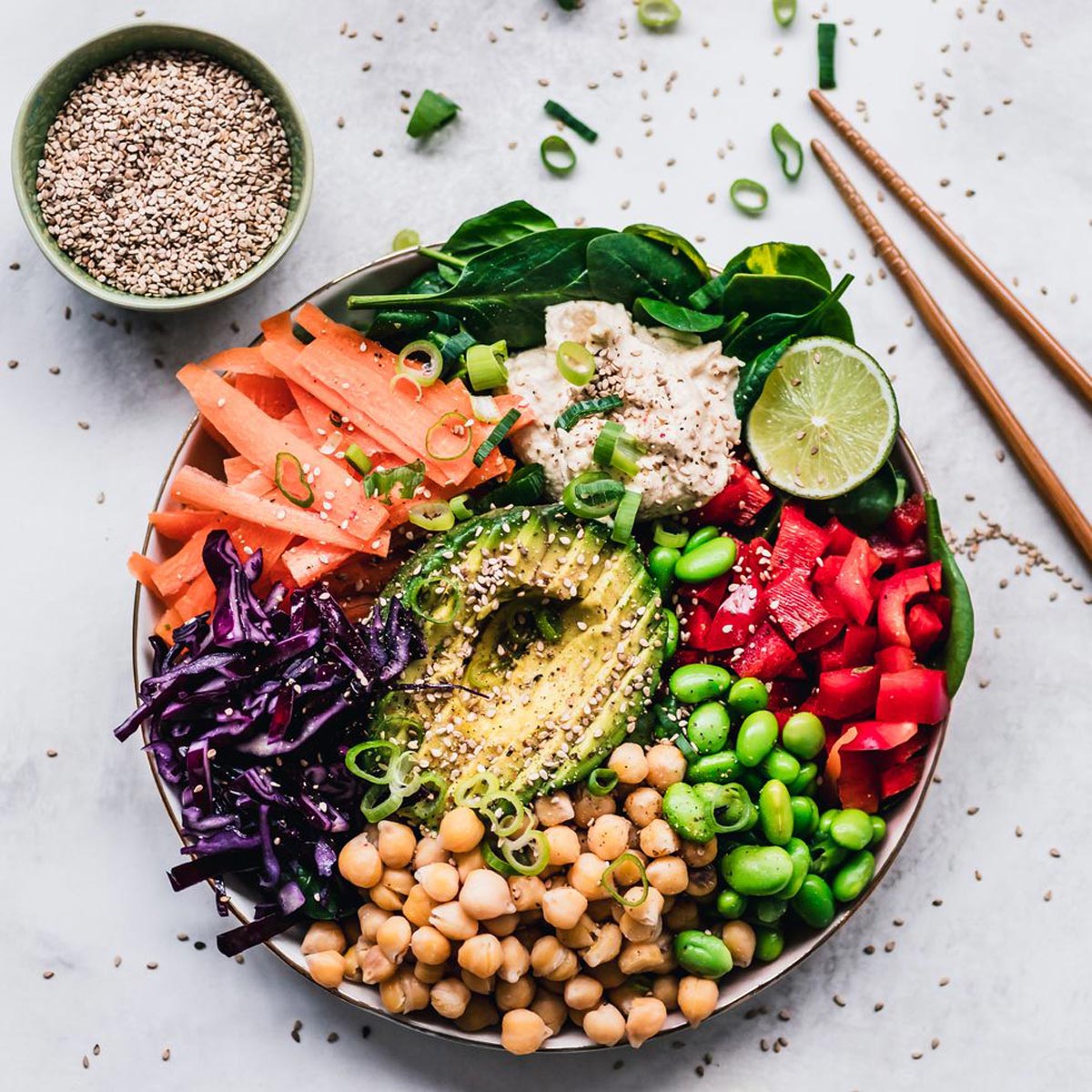Eating a healthy diet involves a delicate balancing act and lots of choices along the way. From the foods you eat to how they're sourced, prepared, and processed, the entire chain of food production needs to be carefully considered. For many people, following a vegetarian or vegan diet is the only way forward. From growing nutritional awareness to animal welfare and environmental implications, more people are deciding to avoid meat-based diets all the time.
If you've decided to follow this path, it's important to make smart decisions to protect your health. Let's review the types of meat-free diets, look at the history of vegetarianism, and analyse the benefits and challenges of plant-based eating.
What is a Vegetarian Diet?
The Vegetarian Society defines a vegetarian as a person who does not eat any meat, poultry, game, fish, shellfish, or by-products of animal slaughter. While people make dietary choices for many reasons, vegetarians are united by a lack of meat consumption. Vegetarian meals are likely to include vegetables, fruits, grains, legumes, nuts, and seeds. Many vegetarian diets also include animal-based foods, such as honey, dairy, and eggs.
Vegetarian diets fall into the following four categories:
- Lacto-ovo vegetarians avoid animal flesh but do consume dairy or eggs.
- Lacto vegetarians avoid animal flesh and eggs but do consume dairy.
- Ovo vegetarians avoid animal flesh and dairy but do consume eggs.
- Vegans avoid animal flesh and all animal-derived products.
Along with strict vegetarians, there are also pescatarians, pollo-vegetarians, and flexitarians. Pescatarians avoid all animal flesh except fish, pollo-vegetarians avoid all animal flesh except poultry, and flexitarians choose to consume meat on occasion. There's also the Mediterranean diet and the DASH diet, which focus heavily on fruits and vegetables while restricting red meat consumption.
What is a Vegan Diet?
Veganism is a strict sub-category of vegetarianism that avoids the consumption of all animal-derived products. More than food, veganism is often promoted as a philosophy or even a way of life. According to the Vegan Society, veganism "seeks to exclude... all forms of exploitation of, and cruelty to, animals for food, clothing or any other purpose." Vegans avoid all animal-based products, including fish, shellfish, insects, dairy, eggs, and honey. They also choose to avoid animal-derived materials, products tested on animals, and places that use animals for entertainment.
History of Vegetarian Diets
Vegetarian diets have existed for thousands of years, with people avoiding meat for various cultural, religious, and health-based reasons. From traditional Hindu cultures in India to Jamaican Ital food and Israel’s vegan-friendly cuisine, meat-free diets are more common than many people think. The history of meat-free eating goes back a long way, with vegetarianism popular in India since the 5th century BC. In fact, plant-based diets are likely to have emerged through the ancient religions of India around 1500 BC.
Hinduism, Jainism, and Buddhism all have roots in the Indian sub-continent, with all three religions adhering to the concept of Ahimsa, or kindness to all living things. In the West, Pythagoras and his followers were among the first to avoid meat, although they were probably pescatarians by today's standards. Plant-based staples like tofu and legumes were also eaten in China more than 2,000 years ago. The cuisines of Eritrea and Ethiopia have always been full of plant-based dishes, as have traditional menus in Japan, Indonesia, and Thailand.
The modern vegetarian movement is much younger, however, having emerged in 1847 when the vegetarian society promoted it to the local UK population. A similar group called the American Vegetarian Society formed in New York City a few years later. The vegetarian cause grew over the course of the 20th century, with "veganism" emerging in 1944 despite a lack of historical context. Everything came full circle in the '60s when the hippie counter-cultural movement became heavily influenced by the ancient vegetarian practices of Hinduism and Buddhism.
Benefits of Vegetarian & Vegan Diets
People follow vegetarian recipes and eat vegetarian meals for many reasons, from spiritual and religious traditions to environmental reasons and concerns about animal welfare. There are also health-based reasons for becoming vegetarian or vegan, with a plant-focused diet offering a number of nutritional benefits. In many situations, these reasons overlap and affect each other. Let's take a look at the health-based reasons to follow a vegetarian diet:
Great for Heart Health
Vegetarianism is great for heart health. It helps to reduce the chance of coronary heart disease and limits instances of hypertension or high blood pressure. According to results from an EPIC-Oxford cohort study, a vegetarian diet was associated with lower ischemic heart disease (IHD) risk, with vegetarians 32% less likely to die or become hospitalised for heart disease. In a separate study published in the Journal of the American Heart Association, high plant food diets were associated with a lower risk of cardiovascular morbidity and mortality.
Helps to Support Weight Loss
Eating a healthy vegetarian diet has been associated with weight loss. While eating a plant-based diet does not guarantee a healthy body weight, it often indicates positive eating decisions. Healthy vegetarian diets aim to maximise the consumption of nutrient-dense plant foods while eliminating animal foods and minimising processed foods. Vegetarians often swap meat products for vegetables, nuts, and seeds, all of which provide nutritional benefits without unwanted calories.
May Lower the Risk of Diabetes
Following a balanced vegetarian diet may help to prevent type 2 diabetes. Diabetes occurs when your blood glucose is too high, and it comes with a range of associated complications. Eating low-glycemic foods is a great way to keep your blood sugar levels steady, with vegetarian foods like whole grains, legumes, and nuts some of the best options available. In one study, vegetarians were found to have half the risk of developing type 2 diabetes compared with meat eaters.
May Reduce the Risk of Cancer
Eating a healthy vegetarian diet may reduce the risk of developing cancer. According to one study, lacto-ovo-vegetarian diets may provide protection from cancers of the gastrointestinal tract. In the same study, vegan diets offered statistically significant protection for overall cancer incidence. In another study, low meat eaters, fish eaters, and vegetarians were all associated with a lower risk of general cancer compared to regular meat eaters.
Nutritional Challenges Posed by Vegetarian & Vegan Diets
Eating a healthy vegetarian diet provides a variety of benefits, but it also comes with challenges. While avoiding meat is a great way to increase your consumption of vegetables, grains, and seeds, there is a risk of insufficient nutrient intake in some situations. Vegetarians need to ensure healthy protein intake, along with adequate amounts of iron, calcium, vitamin D, vitamin B12, zinc, and iodine. While many of these nutrients are easily found in meat, they are not necessarily prevalent in non-meat substitutes.
Saying that, however, there are certainly lots of effective and delicious ways to maximise your nutrient intake without meat. For example, nuts, soy, and quinoa are great sources of protein, as are chickpeas, tofu, lentils, almonds, peanuts, and spirulina. If you're looking for iron and zinc, whole grains, lentils, and spinach do a great job. It's important to note, however, that iron and zinc are not as easily absorbed from plant sources, as they are from animal products; cheese is a great option, and vitamin C is always recommended to aid with absorption.
One of the hardest nutrients to access without eating meat is vitamin B12, and it's incredibly important. Low B12 intake can cause anemia and nervous system damage, so you need to be careful. Vegetarians can access this essential nutrient through eggs, milk, cheese, and yogurt. The only reliable vegan sources of B12 are foods fortified with B12 and B12 supplements. Vegans can also struggle when it comes to iodine, but there's an easy solution if you use just 1/4 teaspoon of iodised salt per day.
How to Get the Nutrients You Need
Eating a vegetarian diet can be incredibly healthy and rewarding, as long as you do it right. When the following ingredients are consumed regularly, you can give your body everything it needs to stay healthy and strong:
- Fruits and vegetables - Fresh fruits and vegetables form the basis of most vegetarian diets. Dark leafy greens are especially important because they offer vitamin C, beta carotene, B-vitamins, magnesium, potassium, iron, and calcium.
- Legumes - This food group includes peanuts, chickpeas, beans, peas, and lentils. Legumes play an important role in vegetarian diets because they're packed with protein, fibre, vitamins, minerals, complex carbohydrates, and antioxidants.
- Nuts and seeds - Both delicious and nutritious, nuts and seeds are a great way for vegetarians to get plant-based protein, healthy fats, vitamins, zinc, iron, and calcium. These foods are a great way to add something extra to your regular diet.
- Foods of animal origin - Many vegetarians avoid animal flesh but still consume products derived from animals. You can get lots of vitamins and minerals from eggs, cheese, honey, yogurt, and milk, including milk powder.
- Nutritional supplements - Eating a healthy plant-based diet can be challenging if you want to avoid animal-based products. Nutritional supplements are a great idea for vegetarians and are essential for vegans due to the importance of vitamin B12.
If you're looking for premium vegetarian and vegan foods, we have a huge range of products available. From health-boosting snacks to powerful supplements and superfoods, we have everything you need to stay healthy. At Healthy Being, you can select products based on your diet preferences, with vegetarian and vegan-friendly choices available alongside organic, dairy-free, and gluten-free options. For the very best in health, check out our website today!


 Certified Organic
Certified Organic Vegan Friendly
Vegan Friendly  Vegetarian
Vegetarian Organic Ingredients
Organic Ingredients Dairy Free
Dairy Free Gluten Free
Gluten Free Keto Friendly
Keto Friendly
































